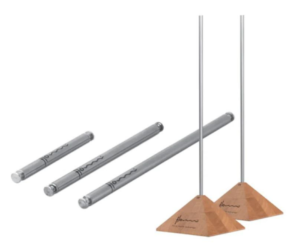
Welcome to 2024, a year where prioritizing thyroid health is not just a choice but a necessity for holistic well-being. The thyroid, a butterfly-shaped gland nestled in your neck, controls a variety of essential bodily functions. Its influence extends from metabolism to energy levels, skin health, digestion, and even your body’s response to cold – something we all pay attention to during the winter months here in the Northern Hemisphere!
As such, this week’s blog delves into actionable ways to nurture and revive your thyroid, helping you ensure a year brimming with vibrant health and reduced pain and inflammation.
Ready to learn how to keep your thyroid happy in 2024? Read on!
Understanding Thyroid Function and Its Impact:
Your thyroid is pivotal in regulating metabolism, impacting nearly every organ. Imbalances in thyroid function, such as hypothyroidism and hyperthyroidism, can lead to various health issues.
These include weight changes, energy level fluctuations, skin conditions, digestive irregularities, and sensitivity to cold. For instance, hypothyroidism can cause weight gain, fatigue, dry skin, slower digestion, and cold intolerance, while hyperthyroidism may lead to weight loss, restlessness, moist skin, and accelerated bowel movements.
- To dive deeper into thyroid symptoms and their far-reaching effects, explore our detailed blog post at Pain Free For Life: Understanding Thyroid Function and Impact.
Enhanced Thyroid Wellness with The Hache Protocol
Adopting a healthier lifestyle is a vital aspect of The Hache Protocol For Pain Resolution, and it also plays a crucial role in maintaining thyroid health. Let’s explore how you can integrate the 5 Interactive Elements of The Hache Protocol into your daily routine to support your thyroid!
Nutrition and Thyroid Health: The Essential Role of Iodine and More
Iodine plays a crucial role in thyroid health, being indispensable for the production of thyroid hormones. Yet, according to Nutrients, an international, peer-reviewed, open-access journal, iodine deficiency is a re-emerging global concern, affecting an estimated 2.2 billion people. To support optimal thyroid function, including iodine-rich foods in your diet, such as seafood, dairy, and iodized salt, is important.
Beyond iodine, your thyroid also relies on minerals like selenium and zinc. These essential nutrients aid in the conversion of thyroid hormones and bolster immune function. You can find these beneficial minerals in nuts, seeds, and whole grains, making them important additions to your diet for maintaining thyroid health.
It’s worth noting that some commonly consumed healthy foods, including soy and cruciferous vegetables, contain goitrogens that, when consumed in large quantities, can interfere with thyroid function by blocking iodine absorption. However, moderation is key. Including these foods as part of a well-rounded diet won’t necessarily harm your thyroid. For more detailed information, please refer to the tables below that elaborate on this topic or ask your healthcare provider.
How Certain Foods Can Impact the Thyroid:
| Level of Impact: | Foods: | How They Affect the Thyroid: |
| Thyroid-Friendly: | Sweet Potatoes, Oats, Berries, Cassava, Seafood (e.g., Salmon, Tuna) | These foods are generally considered thyroid-friendly and provide essential nutrients without negatively affecting thyroid function. They are part of a well-balanced diet. |
| Moderate Thyroid Impact: | Cruciferous Vegetables (Cabbage, Kale, Cauliflower, Broccoli, Turnips), Lima Beans, Spinach | While these foods may have a mild impact on the thyroid due to their glucosinolate or oxalate content, they are safe and recommended to consume in normal quantities as part of a healthy diet. |
| Thyroid Concerns: | Linseed, Sorghum, Rapeseed, Peanuts | These foods contain compounds that can interfere with iodine uptake in the thyroid or affect thyroid peroxidase activity. It’s advisable to consume them mindfully, especially if you have thyroid concerns. |
| Caution Advised: | Soy, Millet, Pine Nuts | These foods contain flavonoids or goitrogens that can potentially hinder the activity of thyroid peroxidase, an enzyme crucial for thyroid hormone production. If you have existing thyroid issues, it may be best to limit their consumption. |
Nutrient Deficiencies and Impact on Thyroid:
| Nutrient | Impact on Thyroid |
| Selenium Deficiency | Can damage the thyroid due to accumulated peroxides and impair hormone synthesis due to deiodinase deficiency. |
| Iron Deficiency | Reduces thyroid activity and may reduce the effectiveness of iodine in preventing thyroid issues. |
| Vitamin A Deficiency | Can increase thyroid stimulation and goiter risk due to its role in regulating the pituitary TSHβ gene. |
This table provides an overview of how certain foods and nutrient deficiencies can impact your thyroid health. For those with thyroid concerns, it’s essential to consider these factors in your diet and talk to your healthcare provider for advice.
Hydration & Gut Health for Thyroid Function
Proper hydration and gut health are fundamental to hormonal balance and, by extension, thyroid health. A well-hydrated body and a healthy gut microbiome play a significant role in maintaining thyroid and overall health. Learn more about the importance of hydration here.
On the topic of gut health, research suggests that leaky gut can contribute to autoimmune disorders. If you have an autoimmune condition such as rheumatoid arthritis, Hashimoto’s thyroiditis, or lupus, it may be worth exploring the connection with your gut health. This can be achieved through incorporating probiotic-rich foods into your diet and daily stress mitigation techniques, like Vagus Nerve Stimulation.
Balancing Stress for Thyroid Wellness
Research from 2004 cites stress as a crucial environmental factor influencing thyroid autoimmunity. It suggests that stress-induced immune changes may play a role in triggering autoimmune diseases, particularly in individuals genetically prone to such conditions. Chronic stress, therefore, emerges as a significant factor affecting thyroid function.
Acknowledging this link, The Hache Protocol strongly emphasizes reducing stress as a fundamental aspect of maintaining overall health and resolving pain. Incorporating stress-relief activities (whatever that looks like for you) into your daily routine can positively influence thyroid health.
Exercise: A Boost for Thyroid Function and Overall Health
Regular physical activity is a cornerstone of The Hache Protocol, emphasizing its dual benefits for overall health and pain management. Exercise, particularly activities like walking, swimming, or yoga, plays a vital role in enhancing thyroid functionality. These forms of exercise accelerate metabolism and contribute to stress reduction, both of which are crucial for maintaining a healthy thyroid.
In our recent blog post, How to Stay Active (and Pain-Free) During the Holidays, we offer a variety of creative and engaging ideas to help you maintain an active lifestyle while navigating the festive season. From simple stretches to tips for managing pain, the blog is packed with practical advice to keep you moving and healthy. Whether you’re looking for ways to stay fit or pain management strategies, this blog has something for everyone. Check it out for some fun and helpful suggestions to make your getting active enjoyable!
Thyroid Function and Healthy Sleep
Quality sleep is essential for hormonal balance and is a fundamental component of The Hache Protocol. Proper sleep also ensures the effective functioning of the thyroid gland. In fact, according to a 2019 study by The Journal of Clinical Medicine, people who sleep fewer than seven hours per day are at greater risk of developing hyperthyroidism.
Aiming for 7-9 hours of restful sleep each night helps regulate thyroid hormones and supports the body’s metabolic processes, in line with The Hache Protocol’s focus on holistic health.
Microcurrent Vagus Nerve Stimulation
Did you know that the vagus nerve, a vital part of our nervous system, might hold the key to controlling symptoms of autoimmune disease? Research from experts such as Kevin Tracy suggests that stimulating the vagus nerve helps treat cancer, heart disease, and Alzheimer’s and reduces body-wide inflammation, which is often the leading cause of autoimmune symptoms.
- To understand this exciting possibility, check out The Ultimate Guide to Healing Autoimmune Disease blog.
Discharging Electrical Build-up In The Thyroid With Microcurrent Therapy
In the short video below, Dr. Rob Vanbergen discusses the importance of discharging electrical build-up in the thyroid using microcurrent therapy. He emphasizes that while the thyroid isn’t treated directly, there are numerous effective approaches to support its health. Dr. Rob also sheds light on the surge in electromagnetic hypersensitivity and its symptoms, particularly noting the thyroid’s sensitivity.
Watch below to learn how to release electrical build-up in the thyroid using our line of Avazzia Life Devices.
Further Navigating Thyroid Health: Medical Support, Personal Care, and Environmental Awareness

Professional medical support and consistent check-ups are fundamental to maintaining thyroid health. Regular thyroid function tests are key, particularly if you exhibit any thyroid-related symptoms or have a genetic predisposition to thyroid disorders.
Thyroid-Related Symptoms to Look Out For:
| Symptom | Description |
| Fatigue | Persistent tiredness, regardless of adequate sleep. |
| Weight Fluctuations | Unexplained weight gain or loss. |
| Mood Changes | Depression or anxiety without a clear cause. |
| Temperature Sensitivity | Feeling unusually cold or hot. |
| Skin Changes | Dry, coarse skin, or in some cases, unusually smooth skin. |
| Hair Loss | Unexpected thinning or loss of hair. |
| Digestive Issues | Constipation or, less commonly, frequent bowel movements. |
| Menstrual Irregularities | Heavier, more frequent, or lighter periods. |
| Muscle Weakness | A general feeling of muscle fatigue. |
| Joint Pain | Unexplained aches in joints. |
| Heart Rate Changes | Unusually fast or slow heartbeat. |
| Cholesterol Levels | High or low cholesterol not explained by diet or lifestyle. |
| Swelling in the Neck | A feeling of tightness or visible swelling in the neck area. |
| Cognitive Impairment | Difficulty focusing or remembering things. |
| Sleep Disturbances | Insomnia or sleeping more than usual. |
Consulting with healthcare providers for a comprehensive approach that blends holistic and conventional medical strategies is vital for effective thyroid management.
In parallel, personal care and environmental factors play a significant role in thyroid health. The chemicals in certain skincare products may disrupt thyroid function, making it advisable to choose natural, organic options. Similarly, reducing exposure to environmental endocrine disruptors, such as BPA, commonly found in plastics, is crucial. Learn more about which body-care ingredients to avoid and safe alternatives in our blog: Dr. Lorry’s Holistic Holiday Beauty Tips – Microcurrent Facials, Home-Made Beauty Products & More!

Additionally, harmful electromagnetic fields (EMFs) in your home, office, and car can adversely affect your health – including thyroid function. Products like the homeFloww® offer a solution. This system, consisting of five parts strategically placed in your home, converts harmful EMFs into natural, body-friendly frequencies similar to the Schumann Resonances. These frequencies are known to boost vitality and strengthen the immune system.
The homeFloww® set uses electromagnetic radiation from devices like cell phones, Wi-Fi, and microwaves to create beneficial energy fields, thus protecting your family from the radiation emitted by these everyday devices.
Embracing a Vibrant and Balanced 2024 with Optimized Thyroid Health
Trust us when we say taking care of your thyroid is a cornerstone of achieving a balanced and healthy 2024. Embrace a thyroid-supportive diet, manage stress, maintain an active lifestyle, and seek appropriate medical guidance when necessary. Every step towards a healthier thyroid is a step towards a more vibrant you this year and every year moving forward!
For ongoing health tips, support, and guidance in your wellness journey, follow Pain Free For Life on YouTube and join our Online Support Group.
Sources cited:
The role of micronutrients in thyroid dysfunction – PMC (nih.gov)
https://www.northwell.edu/news/insights/vagus-nerve-unlocked-by-bioelectronic-medicine/
https://www.ncbi.nlm.nih.gov/books/NBK285556/table/tyd-iodine-deficienc.goitrogenm/
https://pubmed.ncbi.nlm.nih.gov/15650357/
https://www.ncbi.nlm.nih.gov/pmc/articles/PMC6912782/
https://www.ncbi.nlm.nih.gov/pmc/articles/PMC9459956/





